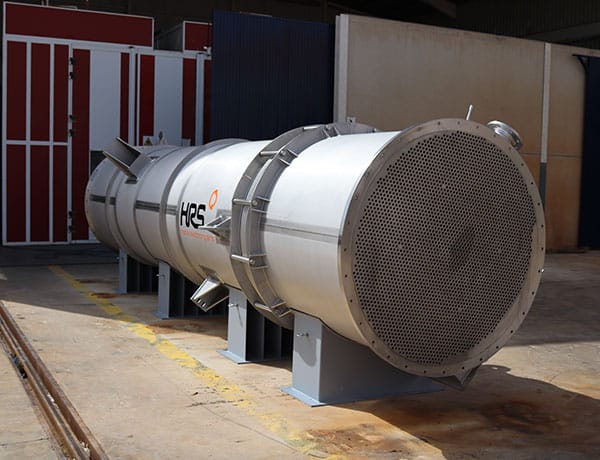Why have ‘off the shelf’ engineering when you can have bespoke?

No two industrial processes or production lines are the same. Companies and their engineers spend huge amounts of time and money developing the most efficient and practical way to achieve their individual objectives. Specifying off the shelf equipment for a customised process can therefore be counter-productive: bespoke can often be a more cost-effective option.
In the same way that a bespoke suit from Savile Row will fit the wearer better than an off-the-peg design, a heat exchanger specifically designed to fit the rest of your process will perform better than one made to a pre-set design. In a worst-case scenario, a heat exchanger which has been developed for one type of application – such as cooling food products – would be completely unsuitable for another, like evaporating sewage sludge.
Unfortunately the experience of our engineering and design staff suggests that all too often this is what happens. For example, a multitube heat exchanger for the pasteurisation of thin sauces, such as stocks or consommé, is specified for thicker products like soup or pizza topping, for which it is completely unsuitable. The effects of using the wrong heat exchanger can range from the inconvenient (increased cleaning or maintenance requirements) to the disastrous (out of specification or unsafe product).
Not only is the initial purchase price of bespoke equipment often much less than you may think, but the additional unforeseen costs associated with using unsuitable ‘standard’ designs in the long term can be considerable. As well as increased servicing, their performance may be impaired; requiring additional running time or energy to achieve the required result, or their operational life may be compromised. In some instances, a standard solution may perform so poorly that the only option is to replace it with a different unit.
Although based on standard tube architecture, every HRS heat exchanger is designed to meet the specific heat transfer and product handling requirements of an installation – itself a level of bespoke design.
Each HRS heat exchanger is designed according to a wide range of parameters. These include chemical and physical assessments of the product (and sometimes the service fluid) to understand its thermal characteristics, flow rate, viscosity, fouling potential, and biological loading, etc. We also consider the heat difference required and the operational temperatures of the product and service fluid, as well as the required pressure drop, necessary treatment times (for pasteurisation applications for example), and other process requirements. As well as ensuring that the performance of the heat exchanger is suitable to meet the brief, we also investigate the physical space available for installation and how the new equipment will connect to any existing lines or machinery.
The amount of time and effort our engineers and designers put into each project design means that when you specify a heat exchanger from HRS, you are effectively buying bespoke rather than off the shelf – and will benefit from the superior performance and cost savings that this delivers.